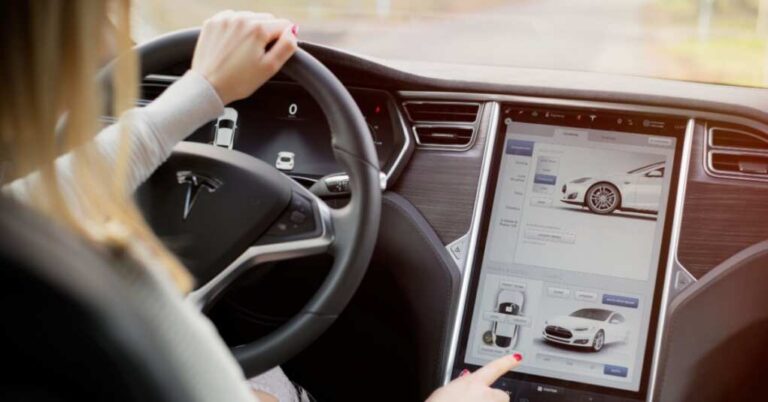
The list of issues with electric vehicles just got a little longer now that their required technology is outpacing their computer network capabilities.
According to a BBC report, owners of Nissan Leafs made until 2016 in the U.K. face an issue. These older cars use a 2G internet connection, which U.K. network operators are phasing out. Nissan confirmed that the app used by Leaf owners to control their cars will stop working on April 1, 2024. However, some features will still be accessible through the vehicles’ touchscreens.
Although this affects a relatively small number of car owners, it shows the challenges drivers may face as cars become more reliant on software and connectivity. The move towards smartphone-like car features brings benefits like over-the-air updates, but even the latest technology eventually becomes outdated.
The U.K. is a bit behind on this issue. A similar situation had already happened in the U.S., leaving Leaf frustrated in 2016 when AT&T shut down the 2G cellular service on which the Leafs depended. To address this, Nissan offered a mix of free and paid upgrades to keep Leaf owners connected.
In 2022, the U.S. bid farewell to 3G cell service, impacting various vehicle brands’ automatic crash notification functions and certain convenience features. While some companies offered upgrades to 4G service, others lost connectivity permanently.
Looking ahead, if 4G eventually fades away and 5G takes its place, the consequences could be even more significant. The auto industry’s increasing emphasis on selling software-enabled features and subscription services adds complexity to this digital evolution.
In 2021, Tesla introduced monthly subscriptions for its prototype Full Self-Driving feature. Previously, this feature required a one-time payment of several thousand dollars. However, there was a catch.
Subscribers with older Tesla models lacking the latest Full Self-Driving computer had to pay an additional $1,500 (later reduced to $1,000) for the upgraded unit. Surprisingly, many of these Teslas were only two years old.
It’s just the latest hiccup for the electric vehicle craze, forcing owners to shell out even more money to stay updated. But again, it’s just the newest concern in an ever-evolving EV money pit.
Among the technological concerns surrounding EVs, driving range is a primary worry for consumers. People want to know how far an EV can travel on a single charge. Additionally, the availability of charging infrastructure is crucial, as consumers seek convenient access to charging points for longer journeys.
According to a recent report by Consumer Reports, electric vehicles (EVs) face significant reliability challenges, with owners reporting nearly 80% more issues than conventional gasoline-powered cars. Plug-in hybrids fare even worse, with 146% more problems. Common issues encompass battery-related problems, climate control concerns, and long recharge times.
Pricing and costs remain significant factors for potential EV buyers. Despite the narrowing gap, EVs generally cost more upfront than traditional gasoline cars. Battery replacement cost, a substantial component of EVs, also adds to the financial considerations. Although EVs have fewer moving parts, maintenance costs can still be a concern.
Safety and battery technology are also paramount considerations for consumers. The safety of lithium-ion batteries used in EVs is a concern, emphasizing the importance of proper handling, storage, and disposal of batteries. While incidents of EV battery fires are rare, they have raised safety concerns. Moreover, ensuring proper recycling and disposal of batteries minimizes environmental impact.
Electric vehicle (EV) batteries, like smartphones or laptops, are sensitive to temperature. Cold weather slows down the chemical reactions inside the battery, reducing its efficiency. When temperatures drop, the battery’s ability to produce electricity decreases. While most EVs warm the battery to an optimal temperature, this process also consumes energy.
Wintry weather significantly impacts EV range. Tests show that at 40°F, the range starts to drop noticeably. Cruising at 70 mph in freezing conditions can reduce range by about 25% compared to milder weather in the mid-60s. Short trips with frequent stops and cabin reheating can drain up to 50% of the range. According to AAA research, EVs lose an average of 41% of their range at 20°F when the heater is on.
Accessories and habits also play a role. Running cabin heaters, seat heaters, and defrosters consume additional power, further affecting the range. Additionally, passengers tend to request more power during cold snaps, impacting the battery even more.
Will the government finally acknowledge that EVs are not the heroes of the climate change story, or will consumers continue to be forced to pay the price for the dream? Currently, EV owners voluntarily choose to open their wallets to the cause. However, if Biden gets his way, the choice will be removed from the equation, and the average American will be forced to add “upgrade EV tech” to their mounting list of unsustainable bills.
